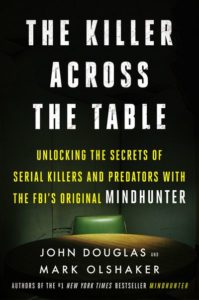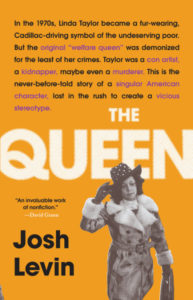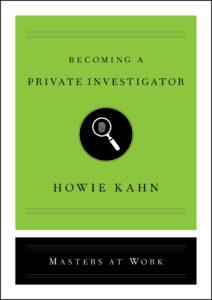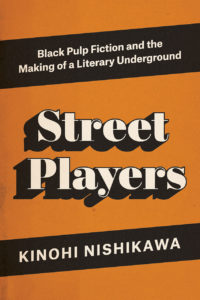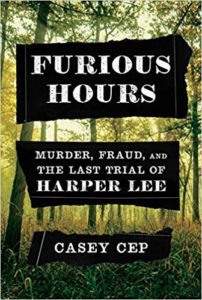These are boom days for writers and readers looking for thoughtful, hard-hitting stories about real-life crime. Whether you’re in the mood for a high-octane page-turner, an investigation, or a penetrating memoir, chances are there’s a book (and many a podcast or docu-series) out there for you. Every month, we round up the best new crime non-fiction with recommendations from CrimeReads staff. Here are the selections for May:
John E. Douglas and Mark Olshaker, The Killer Across the Table (Dey Street)
Douglas’ 1995 book, Mindhunter, remains a perennial titan for the true crime set, now more than ever, since the Netflix series from David Fincher has reminded the public again of Douglas’s groundbreaking work in the area of criminal profiling. Now, Douglas is returning with a new story that zeroes in on four notorious serial killers interviewed as part of his original study. Profiling was a new field at the time, and Douglas has a knack for describing how breakthroughs were achieved and putting them into a rich historical and cultural context. The Killer Across the Table is a disturbing read, no doubt, but for those interested in true crime, Douglas’ insights are invaluable.
Antonio and Jonna Mendez, The Moscow Rules (Public Affairs)
Tony Mendez is by now well-known for his long career in espionage, most famously for his work during the Iran Hostage Crisis, during which he ran an operation posing American diplomats as a Canadian film crew in order to get them out of Tehran safely. But before Iran, Mendez and his wife Jonna were CIA operatives stationed in Moscow, charged with one of the most confounding tasks in American intelligence: getting a leg up on the Soviets on their own turf. The husband-and-wife spy duo proceeded to invent an ingenious array of tools to get the Americans a foothold. In The Moscow Rules, they chronicle those heady days and offer up an engaging, fascinating portrait of 1970’s spycraft behind enemy lines.
Josh Levin, The Queen (Little, Brown)
In 1974, a Chicago woman named Linda Taylor reported a robbery, a decision that would quickly change the course of her life. Taylor was exposed as a serial con artist who had committed rampant welfare fraud, in addition to other crimes, and was soon thrust onto the national scene as the “welfare queen,” a new figure that many a conservative found useful to vilify in the supposed name of capitalism (and the demonization of black women). In The Queen, Slate editor John Levin takes a holistic approach to Taylor’s story, relaying the details of her early life, her crimes, and her unexpected turn as a national debating point, exposing some uncomfortable truths about the era’s attitudes, so many of which persist today.
Vince Houghton, Nuking the Moon (Penguin)
Houghton is the ever interesting, ever engaging curator of the International Spy Museum in DC, whom you’ve likely seen on TV at some point or another holding forth on some strange incident of espionage lore or military history. In Nuking the Moon, he brings that same appetite for the unusual and illuminating to a book full of wild stories of intelligence and military schemes dreamed up by overambitious scientists and spies across the ages. As the title suggests, there’s a plot to explode the moon, as well as many other half-baked ideas that might have changed the course of history (or might not have worked). Houghton is a talented storyteller, and his passion for the material shines through on every page, as the stories get more and more bizarre.
Howie Kahn, Becoming a Private Investigator (Simon and Schuster)
The latest in Simon and Schuster’s “Masters at Work” series, which combines longform journalistic storytelling with helpful tips on picking up a new profession, takes on the enigmatic world of private investigation. Howie Kahn, well known for his feature and food writing, approaches the story from the level of the individual investigators plying the trade, profiling two experienced hands and using their stories, and their investigations into mysterious deaths, as a frame for informing readers how they, too, might start down the path towards becoming private eyes. This one’s an eye-opening story for anyone whose conception of the private sleuth is stuck in the midcentury noir mould. Today’s detectives are quite a different breed, you’ll discover.
Street Players, ed. by Kinohi Nishikawa (University of Chicago Press)
Kinohi Nishikawa’s delightful new history of black pulp fiction is as entertaining as it is informative. In Street Players, Nishikawa looks at the history of midcentury publisher Holloway House, where editors decided to tap into white audiences’ growing tastes for crime and erotic novels featuring black characters and interracial sex, and in the process, unintentionally became the first publishing house to feature black authors writing pulp for black audiences. Nishikawa traces the history of black pulp from its early origins in gentlemen’s magazines, to its heady days of hacks churning out paperbacks, to the literary pulp heyday of such voices as Iceberg Slim and Donald Goines, and beyond, to the modern era of street lit, urban fiction, and hip hop. Essential reading for anyone interested in mid-century pulp and the evolution of urban fiction!
Casey Cep, Furious Hours (Knopf)
Split into three parts—The Reverend, The Lawyer, and The Writer—Casey Cep’s feat of literary and legal unraveling takes on the true crime case that gripped Harper Lee. In exploring the bizarre circumstances linking a breadth of crimes—murder committed by a fraud preacher (in the name of life insurance payouts), the failures of the criminal justice system, and the legacy of racism in the South—Cep probes at the mystery of a place built on slave labor, where injustice has seeped into the soil and the courtroom itself is an engine of inequity. In doing so, she tells a story behind a story, diving deep into the mystery of Harper Lee and the creative spirit, the curse of young success, and the nascent literary potential such a monumental story can inspire.
Georgia Hardstark and Karen Kilgariff, Stay Sexy and Don’t Get Murdered (Forge)
This dual memoir from Karen Kilgariff and Georgia Hardstark, the creators of the wildly popular podcast My Favorite Murder, promises to share the same trademark mixture of empathy, practical advice and ghoulish humor that’s so captivated audiences, and we can’t wait to learn more about two of our favorite podcasters! And, of course, we can’t imagine a more entertaining author tour than these two in conversation.


